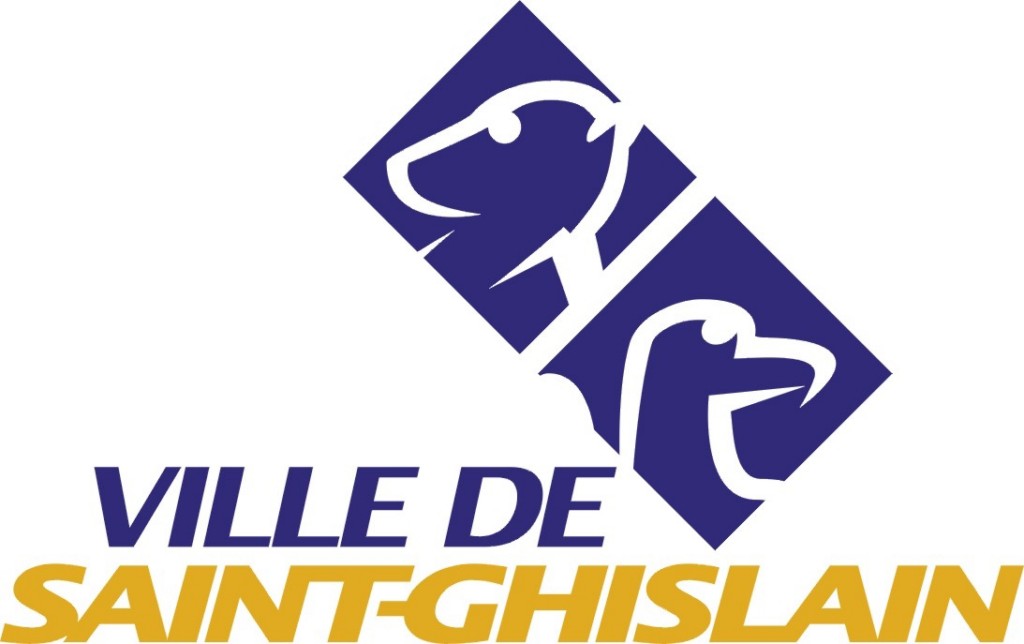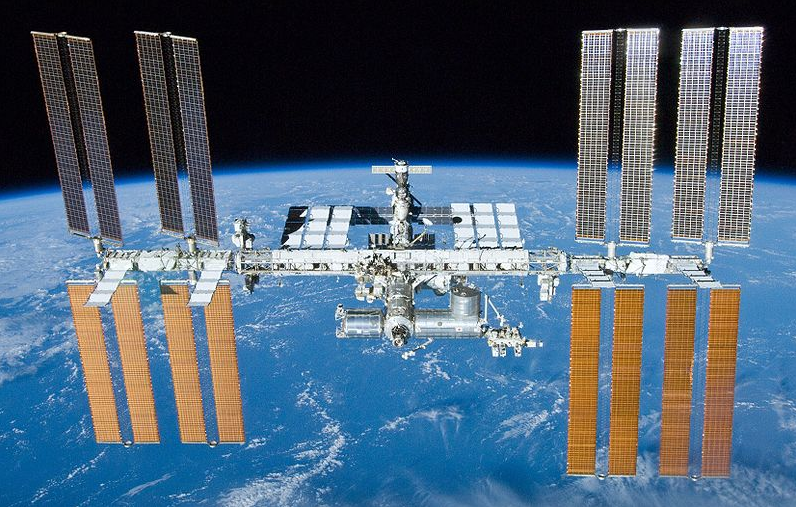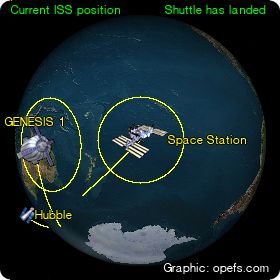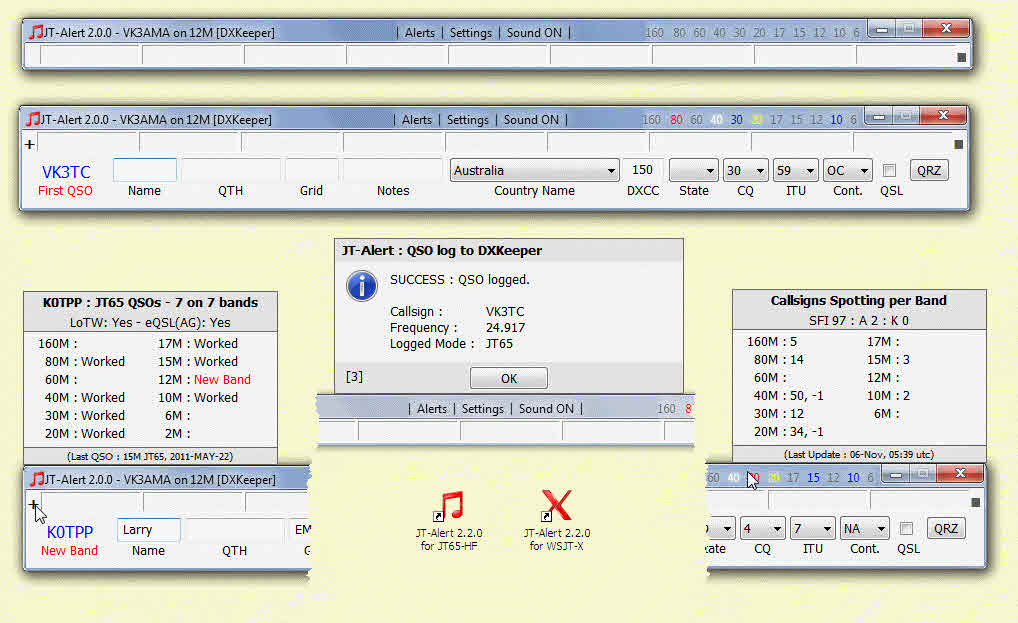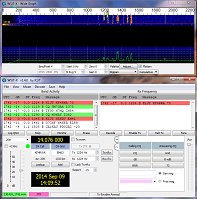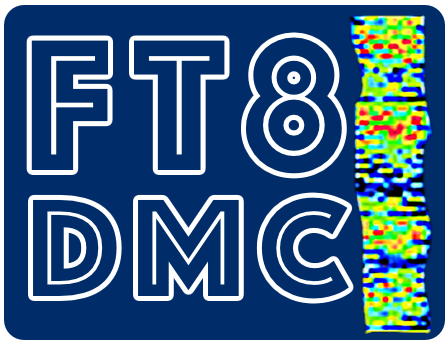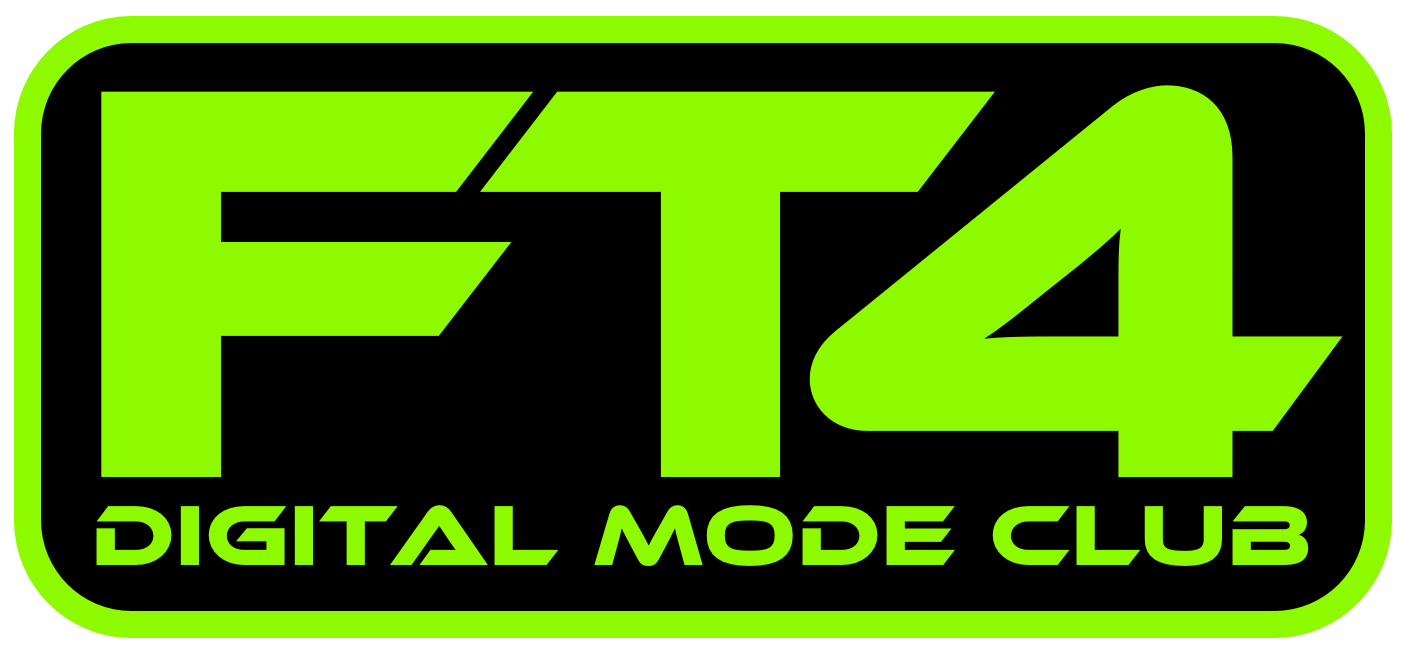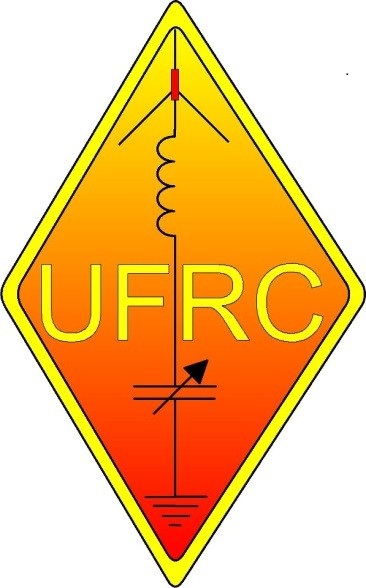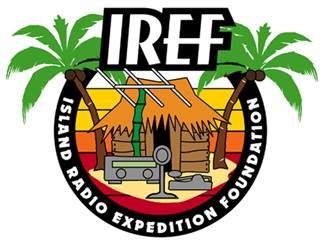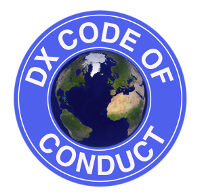
Dec 19, 2022
[NEWS UPDATE] – Big thanks to Antoine, who is now back in Fiji, for sending this update, pictures and a previous message (dated December 1) which did not reach DX-World HQ until now. It explains about the issues encountered so is attached in the picture gallery below. Thanks Antoine ! |
 |
 |
 |
 |
 |
 |
 |
PS: Antoine 3D2AG/p sincerely thanks the German DX Foundation (GDXF) and the Clipperton DX Club (CDXC) for their generous support to this DXpedition. The FT8 QSOs have already been uploaded online to ClubLog, and over the next two weeks the CW logs as well after transcription from paper logs, so please do not worry yet if you cannot find your CW QSOs online.
[DECEMBER 3] – On the scene with 3D2AG/P (credit Antoine). Also listen to his signals on 20CW.

3D2AG/P set-up
[NOVEMBER 20] Antoine, 3D2AG informs DX-World of his next Rotuma DXpedition:
Getting ready here to travel to Rotuma Island (OC-060) around 0600 UTC Saturday, for a 48-hour boat journey. Hoping to be operational around the 24th of November, and until the 20th or December. This is a one-man operation, combining QRL and DX. I hope to be QRV from 160m to 6m, although focus will be on higher bands (15m, 12m, 10m) on CW, SSB, RTTY and some FT8. It would take some significant time and effort to set up the 160m antenna, so I will first monitor the band to see if there is any activity.
Equipment will be the IC-7300 and IC-706MKIIG, with an ACOM 600S linear (max 650W). Most of my FT8 operation on higher bands will be using 100W and solar power; a 3KVA generator and QRO 600W will be used on lower bands FT8 and CW/SSB/RTTY on all bands including 6m.
Antennas will consist of the following:
160: 18m high inverted-L
80 / 40m: Home-made OCFD inverted-V at 15m height.
30m / 60m: Monoband inverted-Vs
20m-17m-15m-12m-10m: Spiderbeam
6m: 5-el Cushcraft A50-5S yagi (extended boom version).On CW I will usually be on the lower portion of the band, unless when the band is open to the USA I will try to be on the general class portion, unless the QRM is too high.
Tentative CW/SSB QRGs:
160m: 1822.5 KHz
80m: 3502 KHz / 3792 KHz
60m: 5359 KHz
40m: 7002 KHz / 7152 KHz
30m: 10107 KHz
20m: 14002 KHz / 14030 KHz / 14260 KHz
17m: 18072 KHz / 18152 KHz
15m: 21002 KHz / 21030 KHz / 21260 KHz
12m: 24902 KHz / 24952 KHz
10m: 28002 KHz / 28030 KHz / 28352 KHz
6m: 50.102 KHz / 50115 KHzFT8 Operation will be using MSHV 2.68 Multistream; fully compatible with both F/H and normal FT8 mode. If possible, to save time please call with a report and not grid. On 160m I will mostly use JTDX on normal mode as signals are usually very weak.
Usually I will start on a normal FT8 QRG, and once a pileup builds up, will QSY to the nominated out-of-band QRGs:
160m: 1836 KHz
80m: 3576 KHz
60m: 5357 KHz
40m: 7056 KHz
30m: 10131 KHz
20m: 14080 KHz
17m: 18095 KHz
15m: 21080 KHz
12m: 24911 KHz
10m: 28080 KHz
6m: 50.323 KHzPlease note that there will be NO internet in Rotuma and I will not be able to entertain sked requests, read any emails, cluster posts or social media apps and there will be no real-time online log. Logs will be uploaded to ClubLog after my return to Fiji. Pending QSls (there are still lots of them, apologies) will also be dealt with on my return.
During this trip my first task will be to lay some flowers on the grave of my dear son Rehanisi, who left us so unexpectedly and cruelly on the 9th of January 2020. Thank you to all who have sent condolences, messages of support and helping words; each of these is most sincerely appreciated.
This upcoming operation will be partly supported by the German DX Foundation and the Clipperton DX Club, and they are both sincerely thanked for their sponsorship.
Looking forward to work you on the bands and VY 73,
Antoine 3D2AG
PS : Antoine 3D2AG/p remercie sincèrement la German DX Foundation (GDXF) et le Clipperton DX Club (CDXC) pour leur généreux soutien à cette DXpedition. Les QSO FT8 ont déjà été téléchargés en ligne sur ClubLog, et au cours des deux prochaines semaines, les journaux CW également après la transcription à partir des journaux papier, alors ne vous inquiétez pas encore si vous ne trouvez pas vos QSO CW en ligne.
[3 DÉCEMBRE] – En scène avec 3D2AG/P (crédit Antoine). Aussi écoutez ses signaux sur 20CW.
[20 NOVEMBRE] Antoine, 3D2AG informe DX-World de sa prochaine expédition Rotuma :
En espérant être opérationnel vers le 24 novembre, et jusqu’au 20 ou décembre. Il s’agit d’une opération d’un seul homme, combinant QRL et DX. J’espère être QRV de 160m à 6m, bien que l’accent soit mis sur les bandes supérieures (15m, 12m, 10m) sur CW, SSB, RTTY et certains FT8. Il faudrait beaucoup de temps et d’efforts pour installer l’antenne de 160 m, je vais donc d’abord surveiller la bande pour voir s’il y a une activité.
L’équipement sera l’IC-7300 et l’IC-706MKIIG, avec un ACOM 600S linéaire (max 650W). La plupart de mes opérations FT8 sur des bandes supérieures utiliseront 100 W et l’énergie solaire ; un générateur 3KVA et QRO 600W seront utilisés sur les bandes inférieures FT8 et CW/SSB/RTTY sur toutes les bandes y compris 6m.
Les antennes seront composées des éléments suivants :
160 : 18m de haut en L inversé
80 / 40m : OCFD fait maison en V inversé à 15m de hauteur.
30m / 60m : V inversé monobande
20m-17m-15m-12m-10m : Spiderbeam
6m : 5-el Cushcraft A50-5S yagi (version à flèche allongée).Sur CW, je serai généralement dans la partie inférieure du groupe, à moins que lorsque le groupe est ouvert aux États-Unis, j’essaierai d’être dans la partie générale de la classe, à moins que le QRM est trop élevé.
QRG provisoires CW/SSB :
160 m : 1 822,5 kHz
80m : 3502 KHz / 3792 KHz
60m : 5359 KHz
40m : 7002 KHz / 7152 KHz
30m : 10107 KHz
20m : 14002 KHz / 14030 KHz / 14260 KHz
17m : 18072 KHz / 18152 KHz
15m : 21002 KHz / 21030 KHz / 21260 KHz
12m : 24902 KHz / 24952 KHz
10m : 28002 KHz / 28030 KHz / 28352 KHz
6m : 50.102 KHz / 50115 KHzLe fonctionnement FT8 utilisera MSHV 2.68 Multistream ; entièrement compatible avec les modes F/H et FT8 normal. Si possible, pour gagner du temps merci d’appeler avec un rapport et non une grille. Sur 160 m, j’utiliserai principalement JTDX en mode normal car les signaux sont généralement très faibles.
Habituellement, je commence sur un QRG FT8 normal, et une fois qu’un empilement s’accumule, je vais QSY vers les QRG hors bande désignés :
160m : 1836 KHz
80m : 3576 KHz
60m : 5357 KHz
40m : 7056 KHz
30m : 10131 KHz
20m : 14080 KHz
17m : 18095 KHz
15m : 21080 KHz
12m : 24911 KHz
10m : 28080 KHz
6 m : 50,323 KHzVeuillez noter qu’il n’y aura PAS d’Internet à Rotuma et que je ne pourrai pas répondre aux demandes sked, lire les e-mails, les messages de cluster ou les applications de médias sociaux et il y aura pas de journal en ligne en temps réel. Les journaux seront téléchargés sur ClubLog après mon retour aux Fidji. Les QSl en attente (il y en a encore beaucoup, désolé) seront également traitées à mon retour.
Au cours de ce voyage, ma première tâche sera de déposer des fleurs sur la tombe de mon cher fils Rehanisi, qui nous a quittés de manière si inattendue et si cruelle le 9 janvier 2020. Merci à tous ceux qui ont envoyé des condoléances, des messages de soutien et des mots d’aide; chacun d’entre eux est très sincèrement apprécié.
Cette opération à venir sera en partie soutenue par la German DX Foundation et le Clipperton DX Club, tous deux chaleureusement remerciés pour leur parrainage.
Au plaisir de travailler sur les bandes et VY 73,
Antoine 3D2AG
![]()
Info de la Source * ICI

